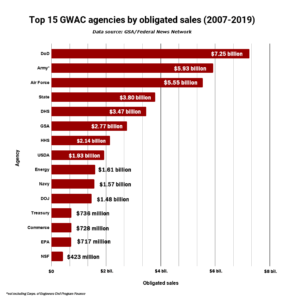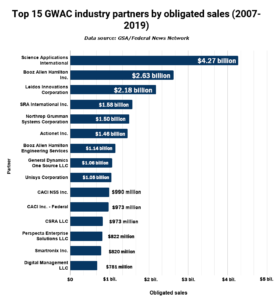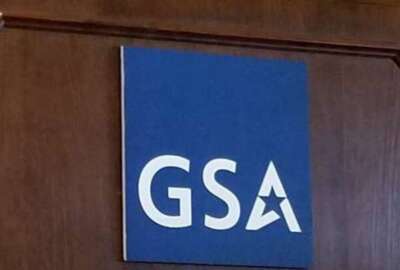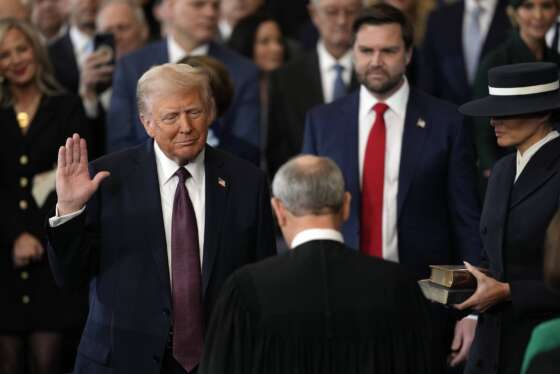GSA@70: 32-year GSA telecom veteran marvels at the progress through the years
GSA's Tom Howder's career started when his agency was stingy with delegations of procurement authority under the Brooks Act.

As part of Federal News Network’s series GSA@70: Mission Evolved, Federal Drive with Tom Temin recently spoke with Tom Howder, the acting deputy commissioner of the Federal Acquisition Service. Howder, a 32-year employee of the General Services Administration, started his career when GSA was the telephone services provider for the government.
Here are some edited highlights of that conversation:
Federal News Network: Give us the arc of change you’ve seen in how the government approaches acquisition generally.
Tom Howder: Well, when I first started it was much more prescribed. We focused much more on commodities. We really were not focused as much on the customer as we were today. We didn’t have the same level of variety and choice available to our clients. We were also in a much more paper-based environment back in those days. We didn’t have access to the internet, so if somebody wanted to look at a catalog, they literally had to get a paper catalog and go through that. They may have had to go through dozens of those as they looked at the catalogs of all the different vendors at those times.
FNN: People may not remember as much or they choose to forget how much paper was involved in submitting bids and opening bids and so on. The evaluation of solicitations was pretty paper intensive too, wasn’t it?
Howder: It was. And in fact, we had entire wings of the building that were devoted just to storing the files from all of those contracts. It was incredibly paper-based at that point in time. We freed up a lot of space since then, of course. And that’s one of the reasons why we’re able to bring everybody into the GSA headquarters now.
FNN: And you started 32 years ago, that was the Delegation of Procurement Authority era. Give us some perspective on that and how things are different.
Howder: During the Brooks Act we were a mandatory service provider unless you got the delegation of procurement authority. And we of course made it as difficult as possible to get the DPA. Eventually clients would get the DPA, but we would put them through a very rigorous set of procedures to make that happen.
That didn’t make very happy customers as you can imagine. And we weren’t very client focused. We were a great monopoly. However with all the great traits of a monopoly, including we were slow and inefficient and focused more on bureaucracy than focused on client emissions and needs.
So when the Brooks Act went away and we became non-mandatory, I remember that I was a branch chief at the time and I had to call our telecom directors that we were no longer going to be mandatory.
Some of them actually got up and were very angry. They said, “Tom, you have to go up to the Hill and change that law back.” Of course, I didn’t have that authority as a branch chief in GSA to go change laws. I wish I did. So we had to figure out how to learn and grow and adapt from that.
And the amazing thing was that in less than a year’s time, that same workforce that was terrified about living in a non-mandatory environment was able to make that shift.
Best listening experience is on Chrome, Firefox or Safari. Subscribe to Federal Drive’s daily audio interviews on Apple Podcasts or PodcastOne.
FNN: Anything from that year that you remember in particular as emblematic of the way things were under the DPAs?
Howder: Oh, well, so I was firm. I came from the telecom side. I remember quite clearly one of our clients saying to me, Tom, I wish you were non mandatory so I could fire you. And that really is what stuck with me since those times.
FNN: And how do you think the Clinger-Cohen Act changed things?
Howder: The Clinger-Cohen Act certainly creating the whole federal CIO and things of that nature. It [was] the high level attention on the program needs for IT and telecom. So in that sense it created a holistic way of looking at that set of requirements. Before that everything was pretty piecemeal and disorganized and rather inefficient. So I think Clinger-Cohen was instrumental in putting that focus on IT in government and solidifying that and making it a successful part of our organizations.
GSA tracks the top agencies to offer governmentwide acquisition contracts (GWACs) and the industry partners with the highest rates of GWAC obligated sales. Click each chart to see the data for the last 12 years.
FNN: And speaking of telecom, that’s also had huge change in how the government buys. From FTS, to FTS 2000, to Networx and so on. Tell us about what you’ve seen there. That is to say, has the regulatory environment of the government kept up with the craziness in the telecom market itself?
Howder: Well, you know, the thing about the telecom marketplace is you always seem to be chasing the latest, latest innovation that’s happening there. When I first started off in GSA, FTS was the free telephone system. That’s what people would call it. And that’s really what it was. It was just voice communication, voice lines, very voice-based. It was after that, that the data really started coming into play, and eventually the data overshadowed the voice to the point where you don’t really even talk about voice telecomm anymore.
FNN: You do hear a lot of agencies citing EIS as the foundation for which they’ll do a lot of other modernizing. So that must give you some satisfaction knowing that everything is converged on IP.
Howder: Even in GSA, we still have a few of those residual local services agreements, but those are quickly becoming a thing of the past.
FNN: That human touch seeing and touching and feeling and looking at the vendors and their products, still part of the buying mix, isn’t it?
Howder: I think it is because it’s rather daunting. Otherwise we have a catalog of something like 30 million different products and services that are available. I don’t think the human mind can really wrap itself around that until you actually start going out there and looking at things and touching things. That’s why I would recommend anybody to come to one of our training conferences and see it for themselves.
To see all stories in the series click here.
Copyright © 2025 Federal News Network. All rights reserved. This website is not intended for users located within the European Economic Area.
Tom Temin is host of the Federal Drive and has been providing insight on federal technology and management issues for more than 30 years.
Follow @tteminWFED










